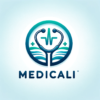Unlocking the Genomic Blueprint: Harnessing the Power of Personalized Medicine for Truly Tailored Therapies
The field of medicine has evolved tremendously over the years, with new advancements and discoveries paving the way for more effective and targeted treatments. One of the most promising innovations in recent times is personalized medicine, which takes into account an individual’s unique genetic makeup to develop tailored therapies. By unlocking the genomic blueprint, scientists and healthcare providers are revolutionizing the way we approach the treatment of diseases, opening up a world of possibilities for improved patient outcomes.
Traditionally, medicine has been focused on a one-size-fits-all approach, where treatments are developed based on broad population averages. However, this approach fails to take into account the vast differences that exist in our genetic profiles, which can greatly influence our response to various treatments. Personalized medicine aims to bridge this gap by considering an individual’s genetic information and other relevant factors to offer therapies that are specifically designed to target their unique needs.
The key to personalized medicine lies in decoding the human genome. The human genome is essentially the complete set of genetic instructions that make us who we are. It contains all the information necessary for our bodies to function and develop properly. With advancements in technology and the decreasing cost of genetic sequencing, it is now possible to analyze an individual’s genome quickly and accurately. This information can then be used to identify genetic variations or mutations that may increase the risk of diseases or impact the effectiveness of certain treatments.
By understanding an individual’s genomic blueprint, healthcare providers can make more informed decisions about the most appropriate treatment options. For example, in the case of cancer, genetic testing can help determine if a patient is more likely to respond to a particular chemotherapy drug or if they have a higher risk of developing specific side effects. Armed with this knowledge, oncologists can prescribe medications with greater precision, improving the chances of successful outcomes while minimizing potential harm.
Moreover, personalized medicine is not limited to the treatment of cancer alone. It holds immense potential across various medical fields. In cardiology, for instance, genetic testing can identify individuals with a higher risk of developing cardiovascular diseases. Armed with this knowledge, healthcare providers can implement preventive measures and recommend targeted therapies or lifestyle changes to reduce the risk or manage the condition more effectively.
The use of personalized medicine can also extend to mental health, where genetic testing can offer insights into an individual’s predisposition to certain mental illnesses or the likelihood of responding to particular medications. By tailoring treatments to an individual’s genetic makeup, psychiatrists can optimize therapeutic outcomes and reduce the trial-and-error approach often associated with mental health treatments.
While personalized medicine has shown great promise, it is important to note that we are still at the early stages of unlocking its full potential. Challenges such as privacy concerns, accessibility, and ethical considerations need to be addressed to ensure its widespread adoption. However, as technology continues to advance and our understanding of the human genome deepens, the prospects for personalized medicine will only continue to grow.
In conclusion, personalized medicine represents a significant leap forward in healthcare, allowing us to move away from the “one-size-fits-all” approach and towards truly tailored therapies. By unlocking the genomic blueprint, we gain valuable insights that can help us make more informed decisions about treatment options, leading to improved patient outcomes. As this field continues to evolve, we can look forward to a future where healthcare is not only personalized but also more effective and precise than ever before.

